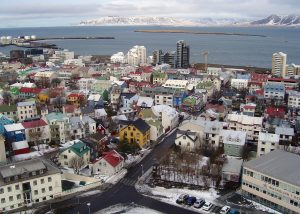15.3.2 The International System, Sovereignty and the State
John Wright
The defining aspects of the international system are predicated on the relationship between states: literally inter-national. States remain the highest order of sovereign agency – the largest autonomous aggregate unit of human activity – in political affairs. It is states that make and enforce laws. In a simple example: the laws of the United States do not apply in Canada, nor vice versa. For American law to apply in Canada, Canada would have to pass a law recognizing the application of American law, thereby making it Canadian law.

The power of this absolute norm can be seen in the equality of status, inviolability, and independence given to such disparate entities as Luxembourg, the United States, Togo, or India. Iceland, an island country of 350,00 people – the size of London Ontario – with a GDP of $24 billion, is the sovereign equal of Japan, an island country of 126 million people and a GDP of $5 trillion (World Bank, 2021).
Critically for international relations, it is the state that filters all activities on the international stage. This means that the structures of internationalization, and therefore of globalization, rest directly or indirectly on agreements between states and/or on what is required to cross state boundaries. A few examples can quickly illustrate this:
- International law comprises agreements between states – treaties – that rely on states to enforce them within their jurisdictions.
- Multinational corporations must abide by the domestic laws of countries within which they operate.
- Social media are subject to domestic censorship and regulation.
States retain the ultimate power of sovereignty regardless of international norms or treaties: the ability to wage war, to invade, to blockade, to define laws and rights and to tax (or to refute international levies).
Discussion Questions
- Look up examples on regulation or censorship of social media from around the world to discuss how they differ.
- Compare the status of nations that are not states to those that are: How comparatively autonomous are Tibet, Palestine, Greenland, or perhaps more interestingly – Taiwan? In Canada, what is the autonomy and jurisdiction of Québec – a province that claims nationhood – compared to a treaty First Nation?
But there are limits to sovereignty. And there are different expressions of sovereignty. Individual states, even the most powerful, do not get everything their own way based on raw power, size or military force. States that isolate themselves entirely from abroad are most likely to suffer, perhaps even to the point of collapse.
Nor is the world simply an anarchic and brutal competition between states jostling for dominance. States can, and obviously do, come together cooperatively to further mutual goals. These can range from basic protection and cooperation on borders and boundaries to deep collaboration for the improvement of citizen well-being. And, of course, states also collaborate to further shared ideas or goals, things that might include ideologies, concepts and worldviews. At one end of the continuum rests isolationist states such as North Korea and on the other the deep collaboration and mutual integration of the European Union.
This discussion also informs us that the state and the international system define each other: states create the international system, and the international system imposes limitations, order and boundaries on states. A state itself is only a state in the fullest sense when it is recognized by other states in our international system. Therefore, a change in one affects a change in the other. This is something to bear in mind as we look at the state itself.
Media Attributions
- Reykjavik City Iceland Downtown Cityscape © robingileo is licensed under a CC0 (Creative Commons Zero) license

